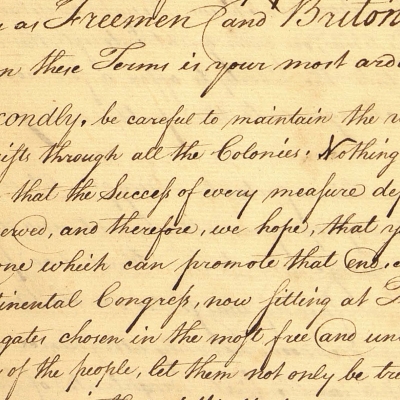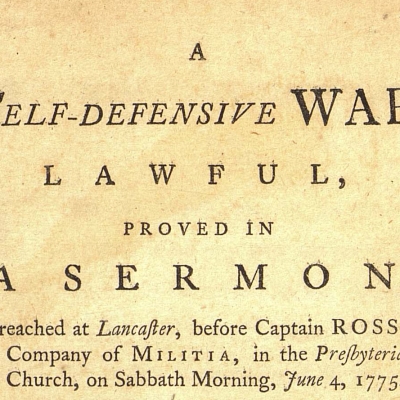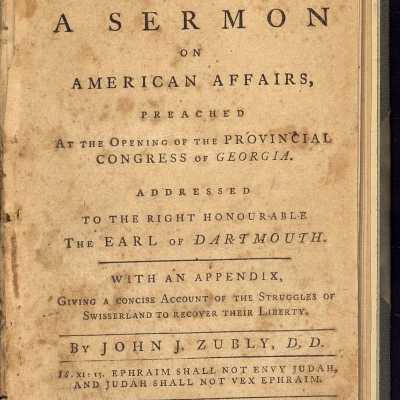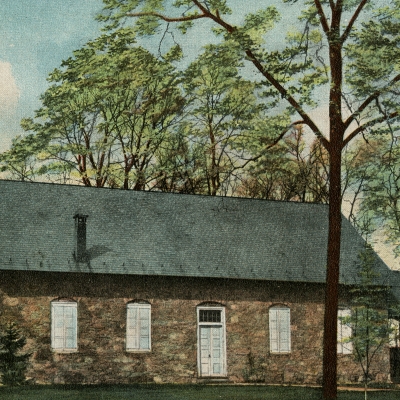As a revolution against England became increasingly likely in the North American colonies, individual ministers and even large religious bodies weighed in on the potential conflict. This document set focuses on Presbyterian ministers and the Presbyterian church, and sheds light on how Presbyterian theology and administration both inspired and were influenced by the principles of freedom, equality, and self determination that brought about the American Revolution.
The Synod of New York and Philadelphia, which was then the national governing body of the Presbyterian Church in America, made a statement in May of 1775 that carefully advocated for both loyalty to King George III and support for the Second Continental Congress, which was meeting that very month to decide on a course of action in the war with Britain.
About a month after the Synod published its statement, a Presbyterian minister gave a decisive and politically charged sermon in support of what he called a “self-defensive war.” Rev. John Carmichael compared England’s control of the colonists to slavery, and made a case for the legitimacy of war, given the injustice of British rule. Historian Christopher Pearl wrote that not only did many Presbyterians support the idea of a revolution against England, but that some Presbyterians inspired the leaders of the revolution with their powerful sermons and scriptural support for war against an unjust colonial government.
Support for a revolution was not universal, however, and many Presbyterians were loyalists. Georgia-based minister and statesman John Zubly criticized unfair British policies and the infringement of colonists’ rights and liberties, but also promoted peaceful reconciliation with the mother country.




